PhD panel debate: focus on your PhD – the rest comes later
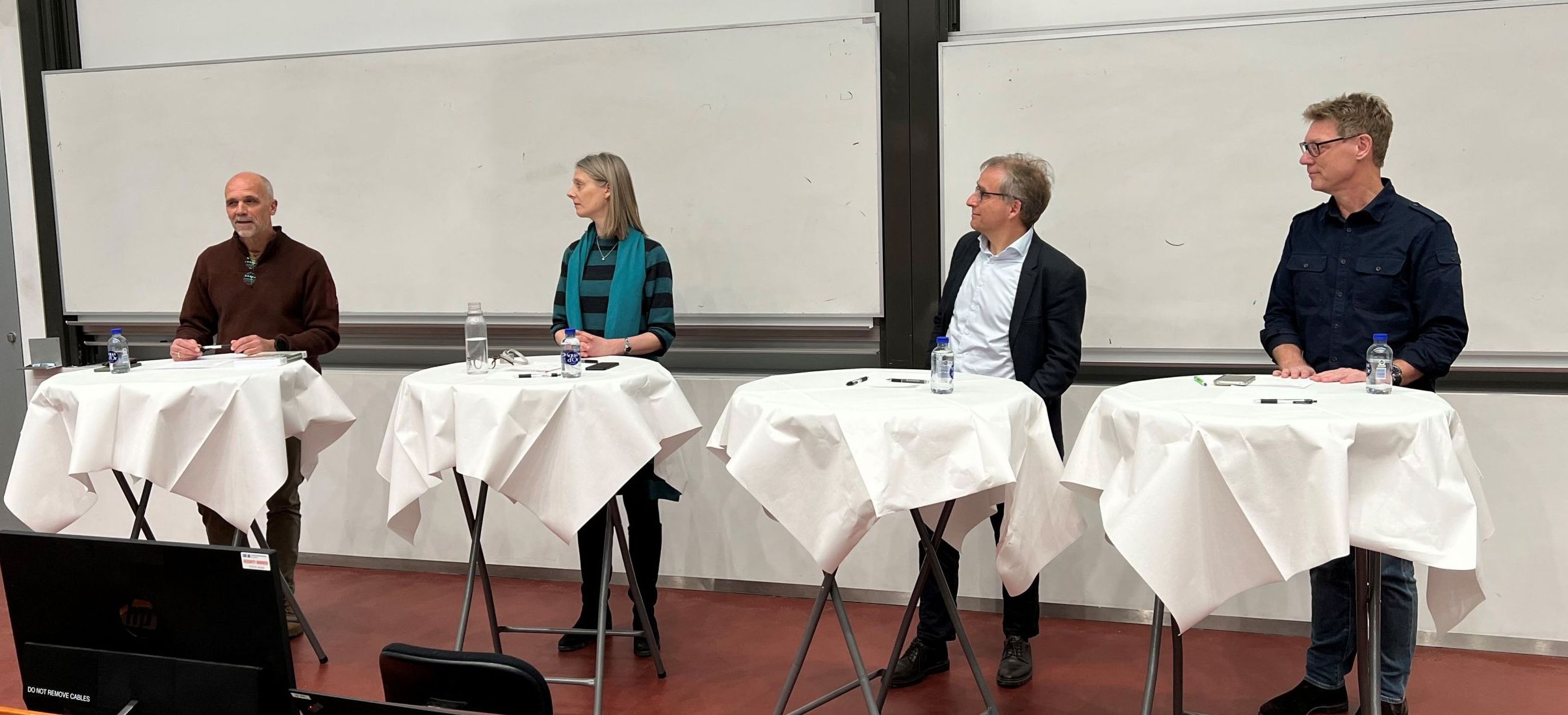
Panelists (from the right): Torsten Ringberg, Marie Louise Mors, David Lando, Thomas Plenborg.
How do you best disseminate your PhD research? At a PhD panel debate, the panelists all agreed: Don’t. Not yet anyway. Give your all to your research and dissertation and concern yourself with becoming a good scholar instead.
Many nuggets of useful advice from senior researchers were given out when the PhD Association of CBS (PAC) organised a panel debate titled ‘Engaged Scholarship’ at Solbjerg Plads on Monday 27 March.
The event targeted PhDs, Postdocs and Assistant Professors. The panel comprised four CBS professors, all former international PhD students themselves, recognised for their ability to mingle their research with societal relevance and with strong engagement outside academia.
The PAC chair Daniela Micu, currently taking her PhD at the Department of Marketing, facilitated the panel debate and kicked off by asking: “What is ‘engaged scholarship’ in different CBS departments and from different perspectives?”
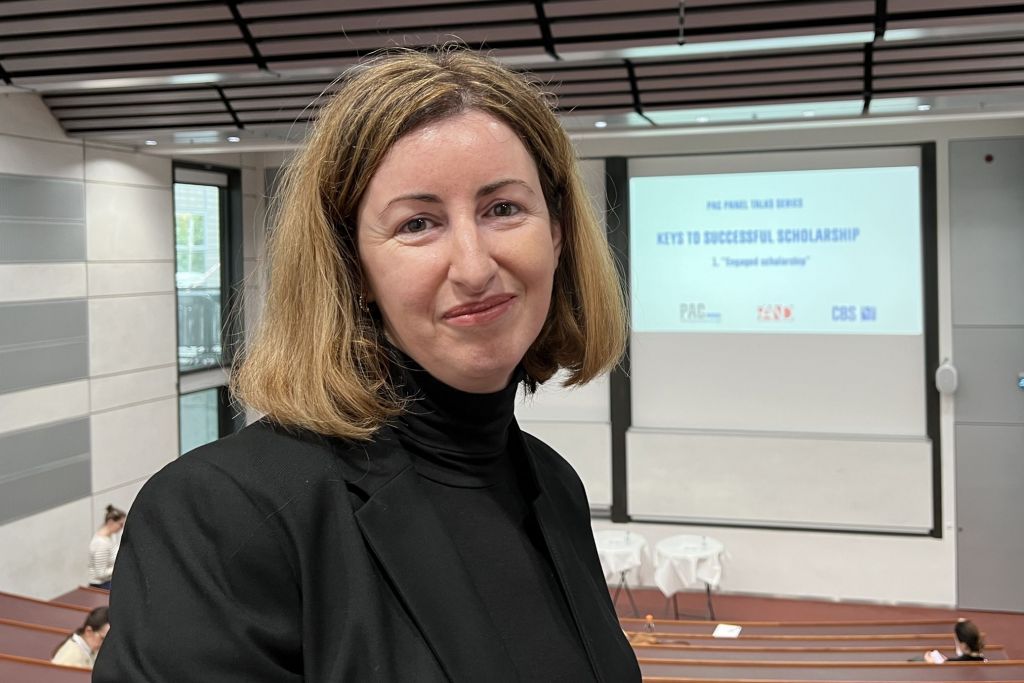
Daniela Micu, PAC chair.
One panellist, David Lando responded promptly: “I think, as a PhD student, you should not worry too much about notions of being ‘engaged’. You should worry about getting the right tools, becoming strong in the disciplines central to your field. In my case, it would be understanding financial theory to do empirics, to do programming.”
After a PhD, he pointed out, you get to train the ability to address issues that finance practitioners worry about:
“But the way you gain respect and relevance is by being strong in your discipline and doing exactly what you were suggesting. Get your toolbox in order and you will shine. You have plenty of years to do all that stuff. Don’t cram it into your three years of training here.”
Difference between Danish and US PhD systems is a disadvantage
Following his lead, the other panellists soon chipped in, also comparing the three-year Danish PhD with its counterpart in the US and some European countries. Danish PhDs are behind from the start and have difficulty competing in the international academic job market.
Marie Louise Mors: “I think we often forget that when competing with a PhD student coming from a US programme, they’ve had two years before they even start thinking about their dissertation where they’re just doing courses in theory and methods – and then they have the three years to write their dissertation.”
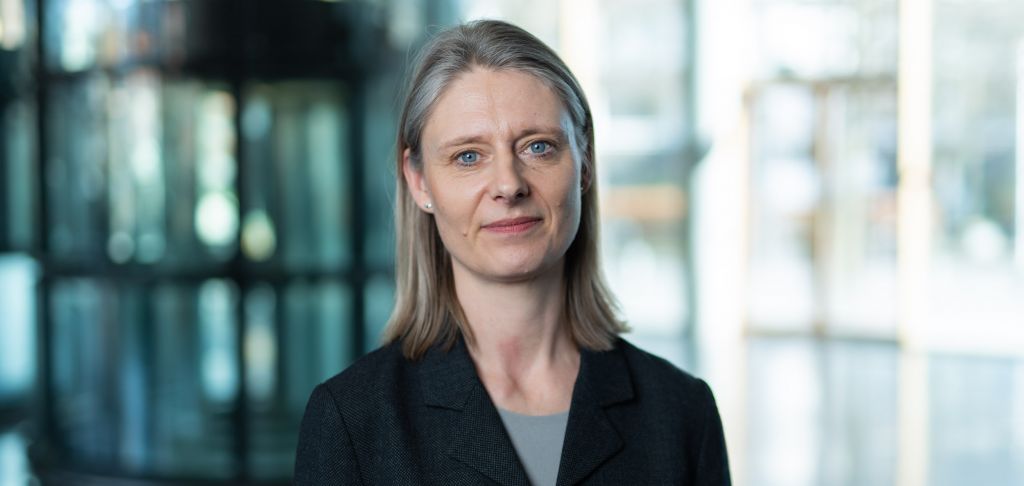
Marie Louise Mors, Professor, CBS
Thomas Plenborg also agreed with the rest of the panel on the time factor: “Three years is a very short time. Normally, you write three distinct papers. Focus, focus, focus – and then you can spend all your energy afterwards doing a lot of more practical stuff. That’s a wonderful thing. But I think you need to qualify to be a good academic first.”
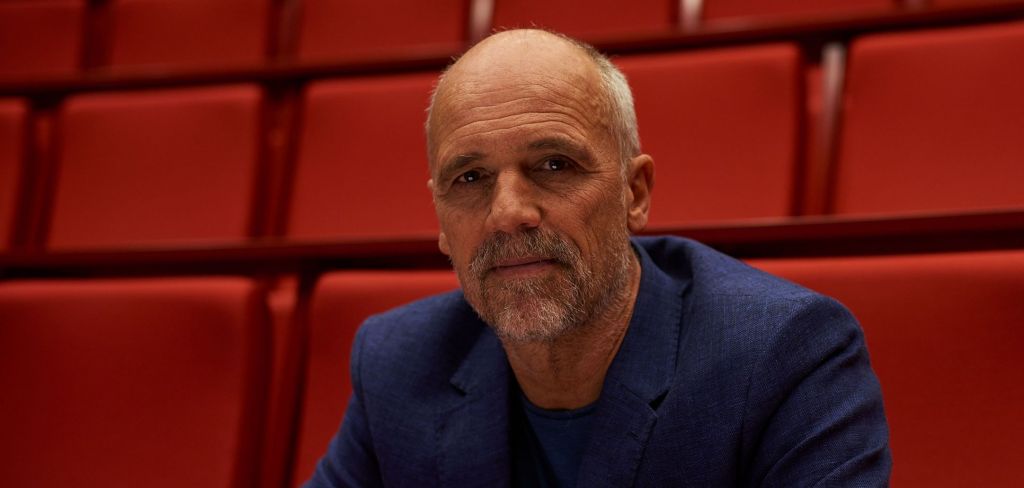
Torsten Ringberg, Professor, CBS
Torsten Ringberg: “Three years is just too little time to do anything else but the PhD. And even then, it’s not enough time to get out there and compete in the international market. So, you’re really facing an uphill battle. All you can do is focus as much as possible.”
Get used to cold canvassing your research ideas to companies
Another ever-pertinent question from the audience involved ‘how to translate academic theory and research into something that is interesting for business’.
Torsten Ringberg: “One litmus test regarding the relevance of your research project, is whether you can convey it in a few minutes so other people both understand it and find it interesting.”
Thomas Plenborg: “I like the reality checks. I always ask my PhD students to contact a firm or two to discuss if this is relevant and how it fits into their daily lives. And it takes ages for them to pick up the phone and make that call. You PhD students hate it. It’s just like cold canvassing. Do it! I’m trying to push my PhD students to establish their own network by making these phone calls. I appreciate it a lot if they have overcome that barrier. Then it becomes easier to make the second phone call and the third.”
Get your toolbox in order and you will shine. You have plenty of years to do all that stuff. Don’t cram it into your three years of training here.
David Lando, Professor, CBS
Other questions discussed were: How do you get your research in Danish media? How do you build an industry and academic network? Does it make you a better scholar to have work experience from the field of study? Why do so few CBS PhDs remain in academia? And a seemingly deep-rooted problem: The stressed-out life of a PhD.
Many Danes insist on job/life balance – and that is hard-fought with the heavy demands placed on PhDs:
“But you should know when the stress level becomes debilitating. It’s good to know the warning signs and also share with others what’s going on in your life,” Torsten Ringberg advised.
David Lando summed up: “Don’t think your thesis will be the equivalent of Einstein’s 1905 papers (the four annus mirabilis papers revolutionising modern physics, ed.). Every thesis has weak chapters – it has to be okay. Some people are afraid to hand in their papers because on page 87 in the appendix there is this derivation… And no one is ever going to read it, you know, not even the examiner!”
This was the first of nine PAC panel talks in this series, funded by CBS and PAND, where senior researchers give away the ‘Keys to successful scholarship’. The next invites will be in your mail, if you belong to the target audience.
The next PAC panel debate ‘Forging your academic profile’. will take place on Wednesday 19 April from 15:00 to 16:30 (followed by networking bar). On 16 May the theme is ‘The craft of academic writing’.


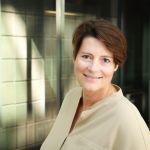
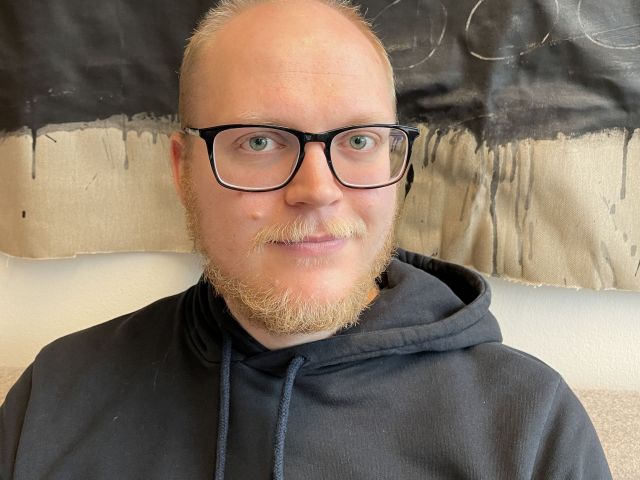
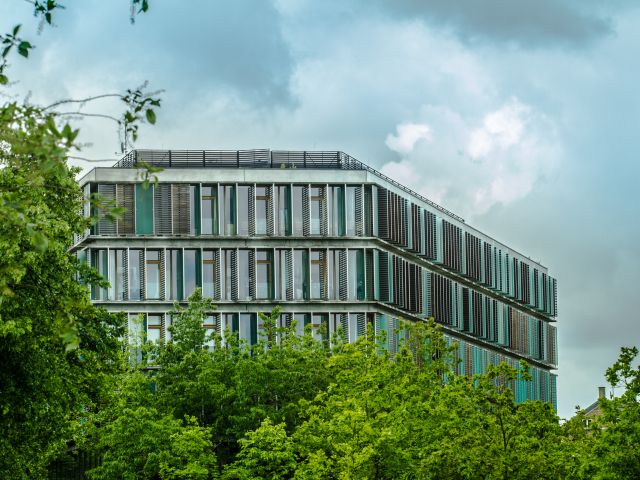
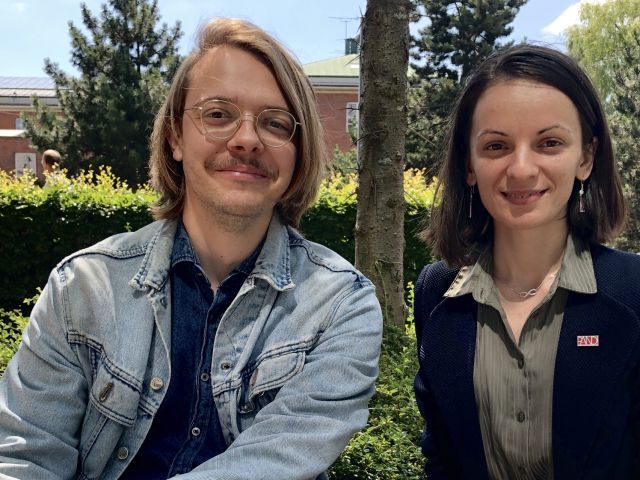
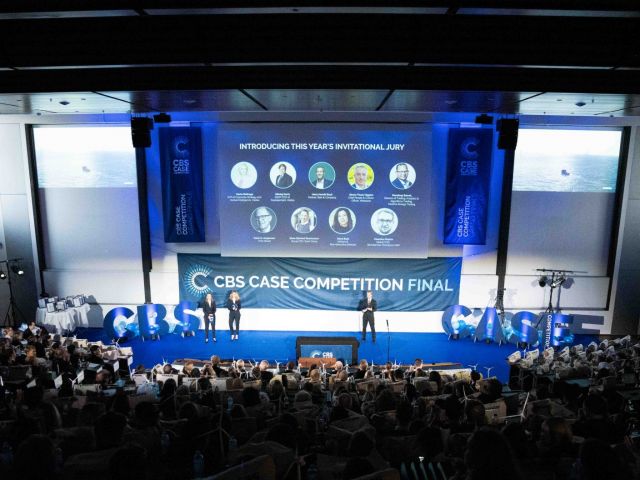
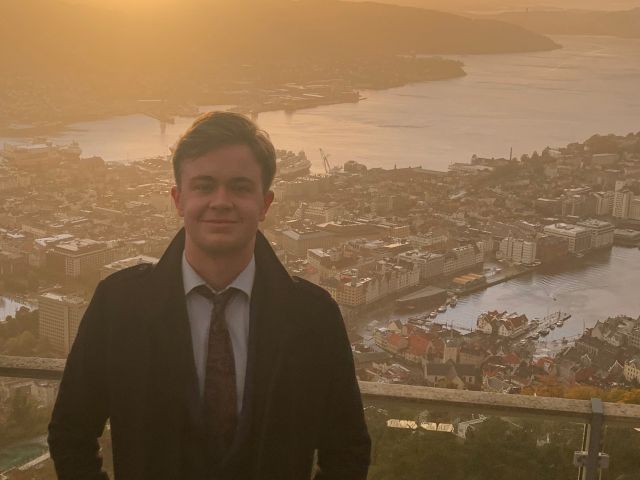




























































































































Comments